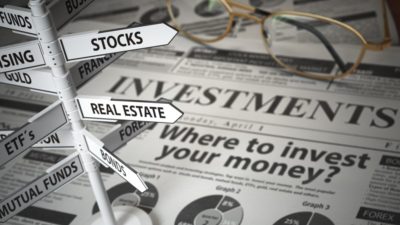Master investor Neil Woodford has made notable disposals of several FTSE 100 companies this year. BAE Systems (LSE: BA) is the latest casualty. If you’re invested in this defence giant, should you be worried and consider selling?
To understand why Woodford has ditched BAE we should bear in mind the investment approach and target return of his flagship equity income fund. He invests in companies on a three-to-five-year view, monitoring their prospects over this timescale on a rolling basis. The target of the fund is to deliver high single-digit annualised returns over the long term.
Looked at in this context, we can understand the explanation of the sale of BAE provided by Woodford’s head of investment communications, Mitchell Fraser-Jones.
Prospective returns
Fraser-Jones writes: “In very simple terms, our total return expectation for a stock equals its dividend yield plus the anticipated rate of dividend growth.” In the case of BAE, the forecast current-year yield is 4.1%, while forecast growth on a three-to-five-year view is 2.3% a year, suggesting a return of 6.4% per annum — below Woodford’s high single-digit target for his fund.
The calculation is based on the share price growing at the same 2.3% a year as the dividend, and as Fraser-Jones says: “We could argue for hours about whether or not that is a realistic growth expectation.” Woodford and his team reckon BAE might do slightly better than the analyst consensus but, even so, they see significantly more attractive prospective returns elsewhere.
Sub-prime lender Provident Financial — a holding Woodford has been adding to in recent months — is one example. The starting yield is 4.6% and forecast growth is 15.9% per annum over the next three years, suggesting a prospective return of 20.5% a year.
The dividend yield/growth calculation is a simple but useful instrument to add to your valuation toolbox. You may want to try it out on other shares Woodford has been buying recently — including Legal & General, Capita and Babcock International — and, indeed, on stocks in your own portfolio.
Pension risk
As well as BAE’s relatively low-key growth prospects, Woodford is also somewhat concerned about the company’s substantial pension deficit. This has become a bit of a theme for him in the current environment of ultra-low interest rates, having also been one of the risk factors he referred to in his previous big blue chip disposal, BT Group (LSE: BT-A).
As the table below shows, the pension deficits of both companies add significantly to their liabilities, with net debt plus pension shortfall being markedly in excess of shareholders’ funds (equity).
| Equity (£bn) | Net debt (£bn) | Pension deficit (£bn) | |
| BT | 10.2 | 9.6 | 7.6 |
| BAE | 2.6 | 2.0 | 6.3 |
Lower interest rates make pension funding more onerous, and, although Woodford doesn’t say it explicitly, the implication is that more of the companies’ profits may have to flow to pensioners, potentially crimping increases of shareholders’ dividends.
Personally, I see the 6.4% annual return (or slightly better) Woodford posits for BAE as fairly attractive in a low-growth world, while, according to my calculations, the BT prospective return is 14.9%.
Pension deficits could represent a risk to dividend growth on a three-to-five year view, but at some point interest rates will surely rise and deficits fall. As such, I reckon BAE and BT remain fairly attractive propositions for investors buying and holding for the long term.







